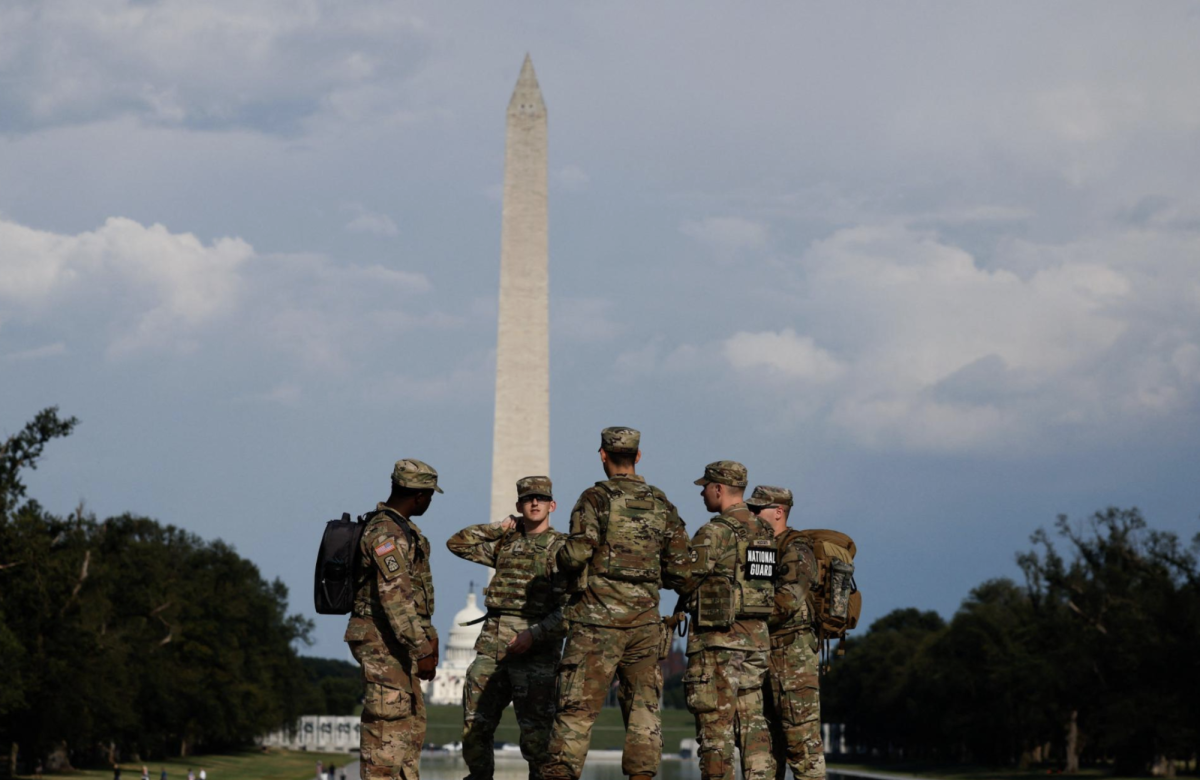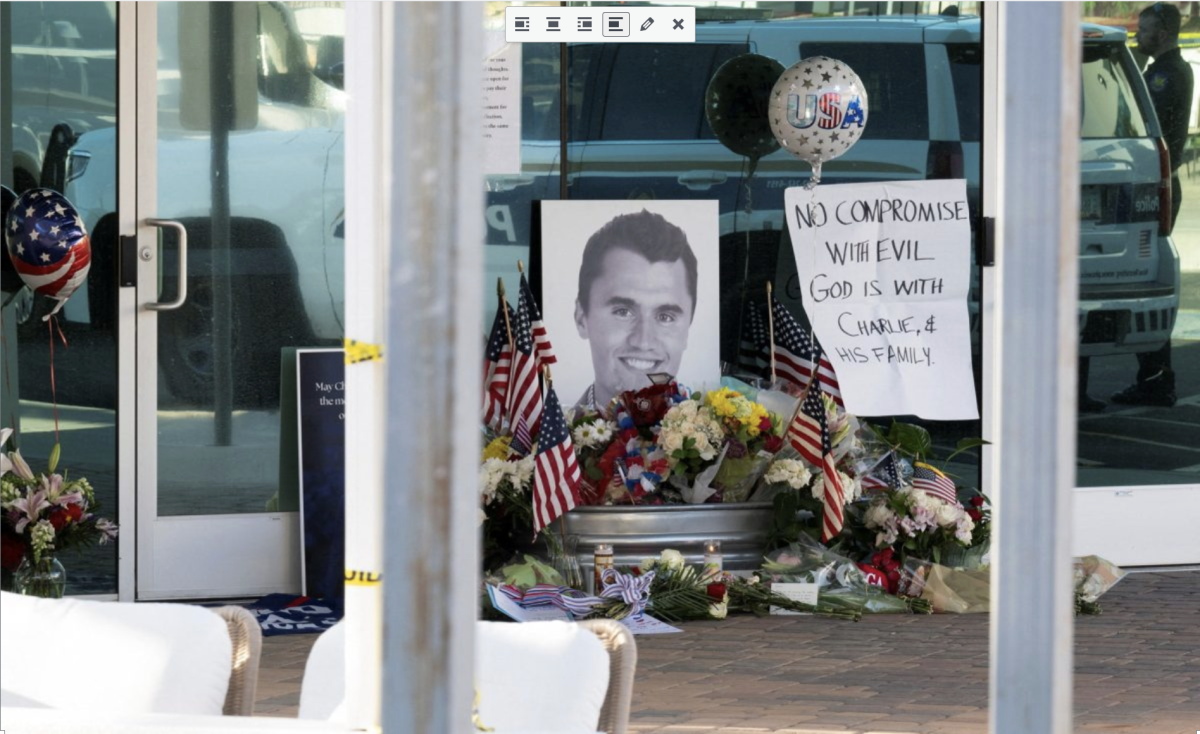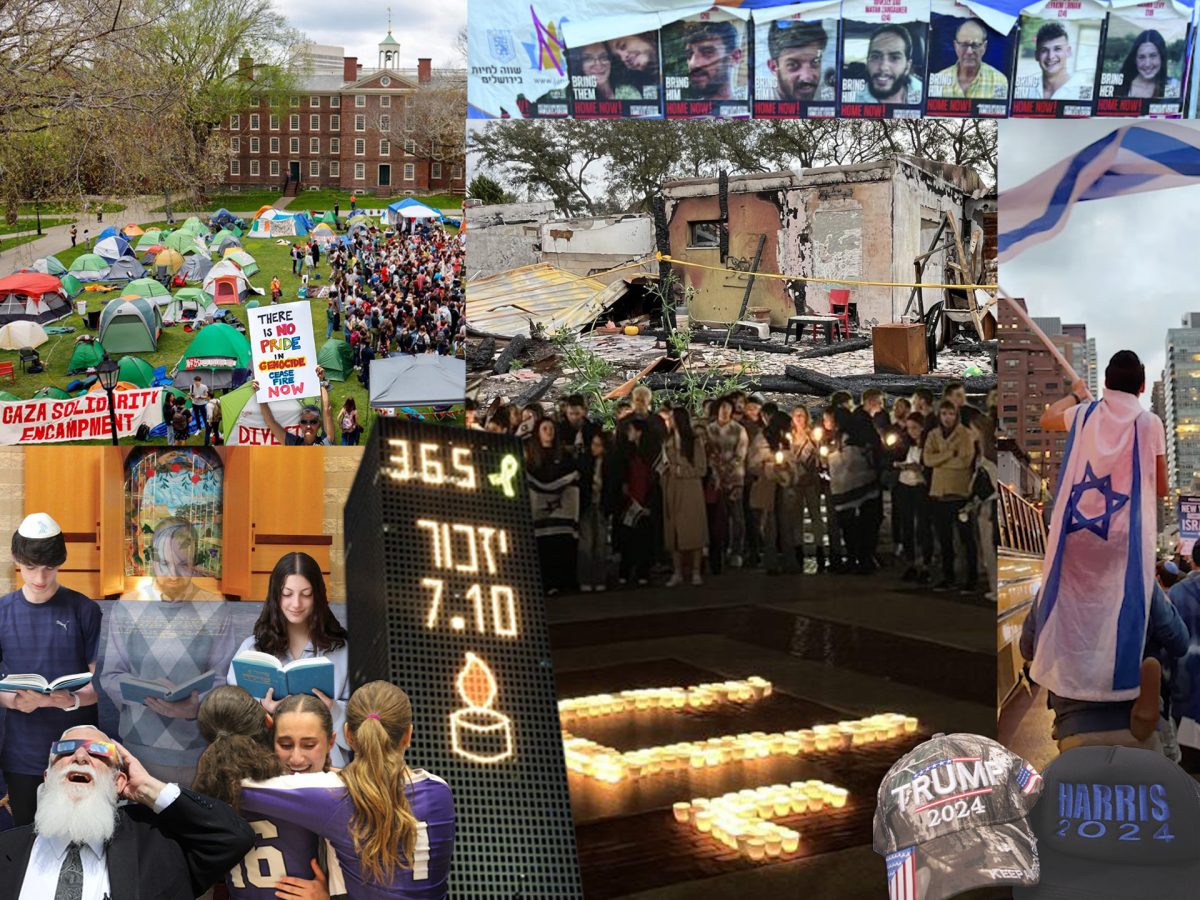While walking into the George Washington University (GW) metro station, freshman at GW Boaz Dauber (‘25) gives a polite nod to the armed National Guardsmen standing by the entrance. This is a common occurrence for Dauber as there are now guards patrolling the nation’s capital.
On Aug. 11, President Donald Trump moved National Guard troops into Washington D.C. after declaring a crime emergency as the basis for the mobilization. In addition, President Trump invoked Section 740 of the Home Rule Act which allows him to temporarily request services from the Metropolitan Police Department (MPD) in the case of an emergency. This means that the President will be able to request resources for the MPD in addition to his bringing of the National Guard into the capital.
According to the White House, President Trump brought in the National Guard to make the capital city safer, while simultaneously addressing other issues.
“It is the policy of the United States to make the District of Columbia safe, beautiful, and prosperous by preventing crime, punishing criminals, preserving order, protecting our revered American monuments, and promoting beautification and the preservation of our history and heritage,” President Trump wrote in an executive order.
Further down in the order, he says, “My Administration shall work closely with local officials to share information, develop joint priorities, and maximize resources to make the District of Columbia safe. Such coordination shall occur through the D.C. Safe and Beautiful Task Force (Task Force), which is hereby established by this order.”
The presence of the National Guard has had a quick impact on some civilians in D.C., while also not having any impact on others, according to freshman Gabey Silverberg. Silverberg is concerned about the effect that the National Guard will have on local businesses in the capital city.
“A lot of immigrants are really scared to come outside because of [Immigration and Customs Enforcement] ICE,” Silverberg said. “A lot of places are shutting down because immigrants work there and they don’t want to go because they’re afraid of ICE storming the place.”
Dauber, who thinks D.C. is not as safe as it probably should be, believes that the increase in visible law enforcement could benefit the city and its citizens.
This particular authority is limited by law to 30 days and requires Congress to pass a resolution in order to extend this period, according to the Office of the Attorney General.
Sophomore Abby Feffer also lives in D.C., specifically in Friendship Heights, and hasn’t encountered the guardsmen at all. Feffer doesn’t believe there has been any effect on the city due to the National Guard and is not sure if there was a legitimate reason to bring them here.
“The fact that they’re here implies that there’s something that they need to be here for,” Feffer said. “Like, it’s necessary for you to have them.”
As the journey of the federal government’s involvement in the affairs of Washington, D.C. continues, Dauber thinks that it’s important to treat the National Guard with respect, no matter one’s opinion on them being here.
“The National Guard’s members that I have talked to are all very friendly,” Dauber said. “…They are just regular people who are unable to do their regular jobs or have been pulled out of school to be here, and they don’t mean any harm.”
This story was first published in CESJDS’ The Lion’s Tale on Sept. 5, 2025.


















